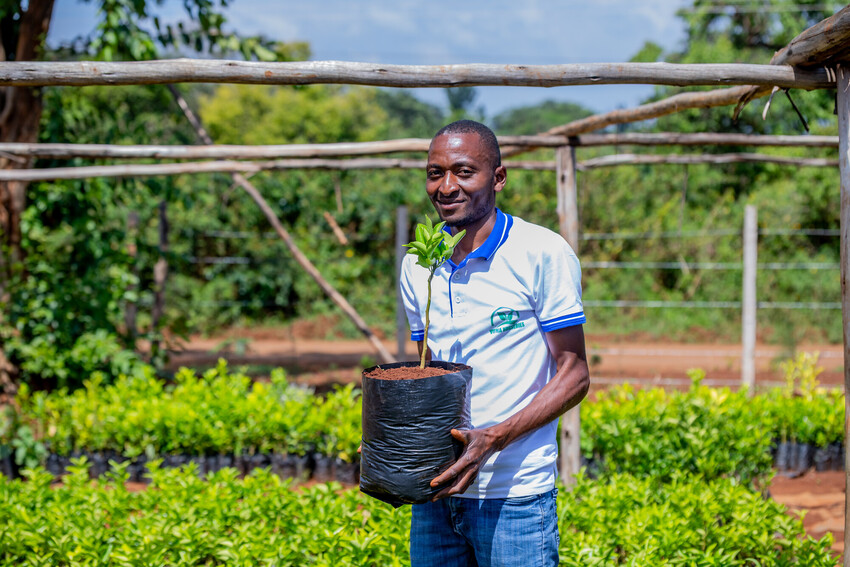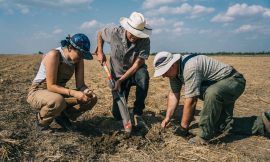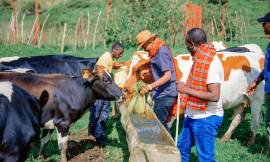Editor’s Note: An innovative practice in agriculture, agroforestry is helping to drive sustainable development in Kenya. Vuma Tree Nursery in Embu County shows how climate-smart practices can create jobs, build resilience and transform food systems for the future.
Simon Mwangangi, a 32-year-old computer scientist from Embu County in Kenya, is the visionary behind Vuma Tree Nursery. Choosing to follow his passion for climate action and tree planting over his academic background, Simon established a flourishing tree nursery that benefits both the environment and local community.
With 130,000 tree seedlings and 40 varieties of trees already in production, Vuma Tree Nursery is set to play a powerful role in combatting climate change while creating jobs for young people in eastern Kenya.
I decided to be in agroforestry because I will create job opportunities. This tree nursery is less than a year old, and I have already employed six people who work here daily. When additional labour is required, the capacity increases to more than ten workers in a day,” Simon explains.
The nursery’s impact goes beyond employment. Located on a one-acre piece of land with little access to water, Vuma Tree Nursery is categorised into agroforestry, fruit trees and ornamental trees, each serving a unique environmental and economic purpose.
Simon takes pride in seeing people purchase tree seedlings, especially in a dry region like his. “I am sure that I am playing a big role in the fight against climate change, and feel very motivated when people purchase tree seedlings from me despite this part of the region being very dry. I am convinced that they have the desire to make the county greener and better.”
Sowing the seeds of change
Starting with just 5,000 seedlings and two employees, Simon gradually expanded to 130,000 seedlings and six full-time workers within seven months. The agroforestry project by international charity, Farm Africa, and Acorn, Rabobank’s carbon-credit platform for smallholder farmers, has been instrumental in Simon’s success, particularly in helping to market his tree seedlings.

The agroforestry project integrates strategic afforestation and reforestation efforts with carefully selected tree species such as avocado, mango and nitrogen-fixing plants. This will help enhancing both economic and environmental benefits. Simon emphasises the importance of prioritising fruit trees over timber trees for long-term environmental impact.
“I realised that if we focus on indigenous trees, people will one day cut them down for charcoal or income. But fruit trees are different; they are less likely to be cut because they offer ongoing benefits and therefore, people will live healthy lives and earn a living from selling of fruits,” he explains. His forward-thinking approach ensures the longevity of tree cover while offering sustainable economic returns.
Tree planting for the future
Looking ahead, Simon envisions Vuma Tree Nursery as a platform for large-scale employment and environmental impact.
“In the next five years, I see myself employing close to 100 people with tree nurseries spread across five sub counties,” he shares.
Simon encourages young people to consider agroforestry and tree planting as a workable career path and to seek guidance from people who have succeeded from venturing into the business. His story is evidence of how Farm Africa and Acorn can drive meaningful change in both livelihoods and environmental conservation.
Header image: Simon Mwangangi at Vuma Tree Nursery in Embu County. Photo: Farm Africa/Bertha Lutome.





